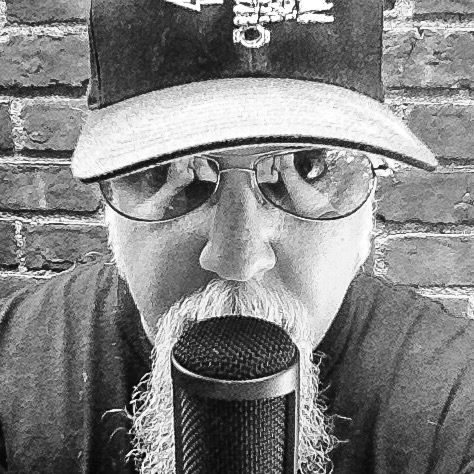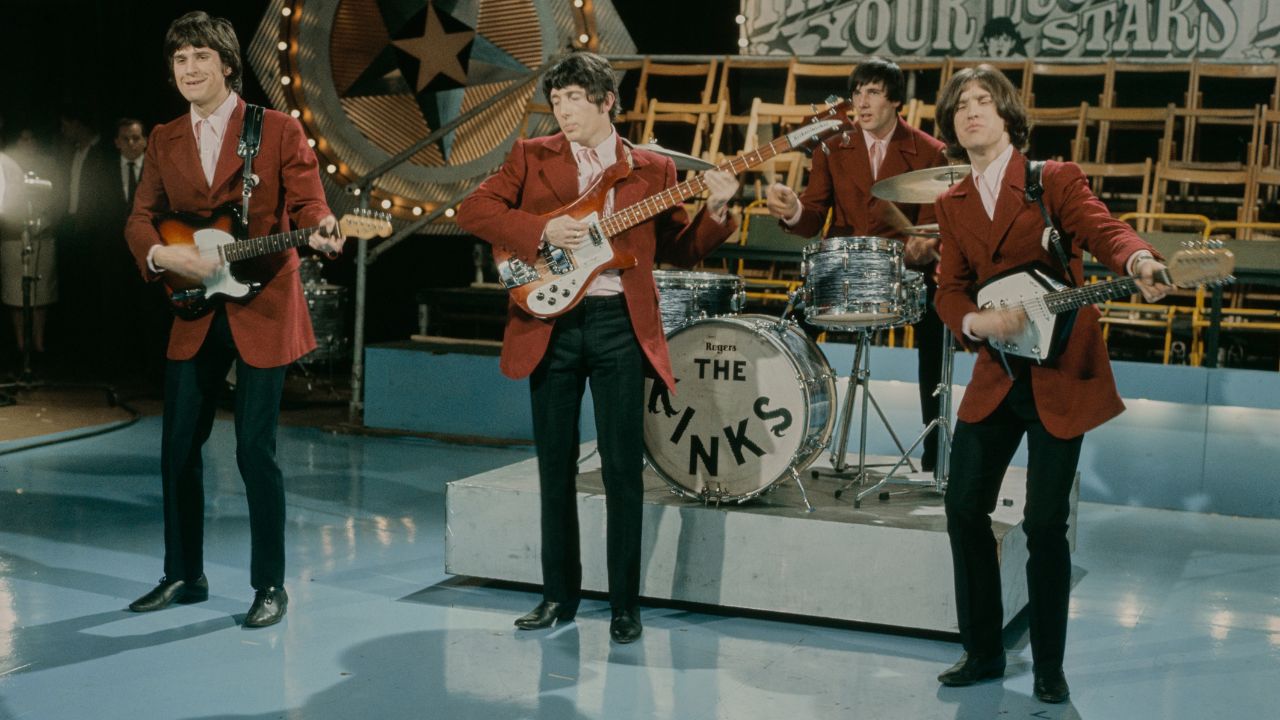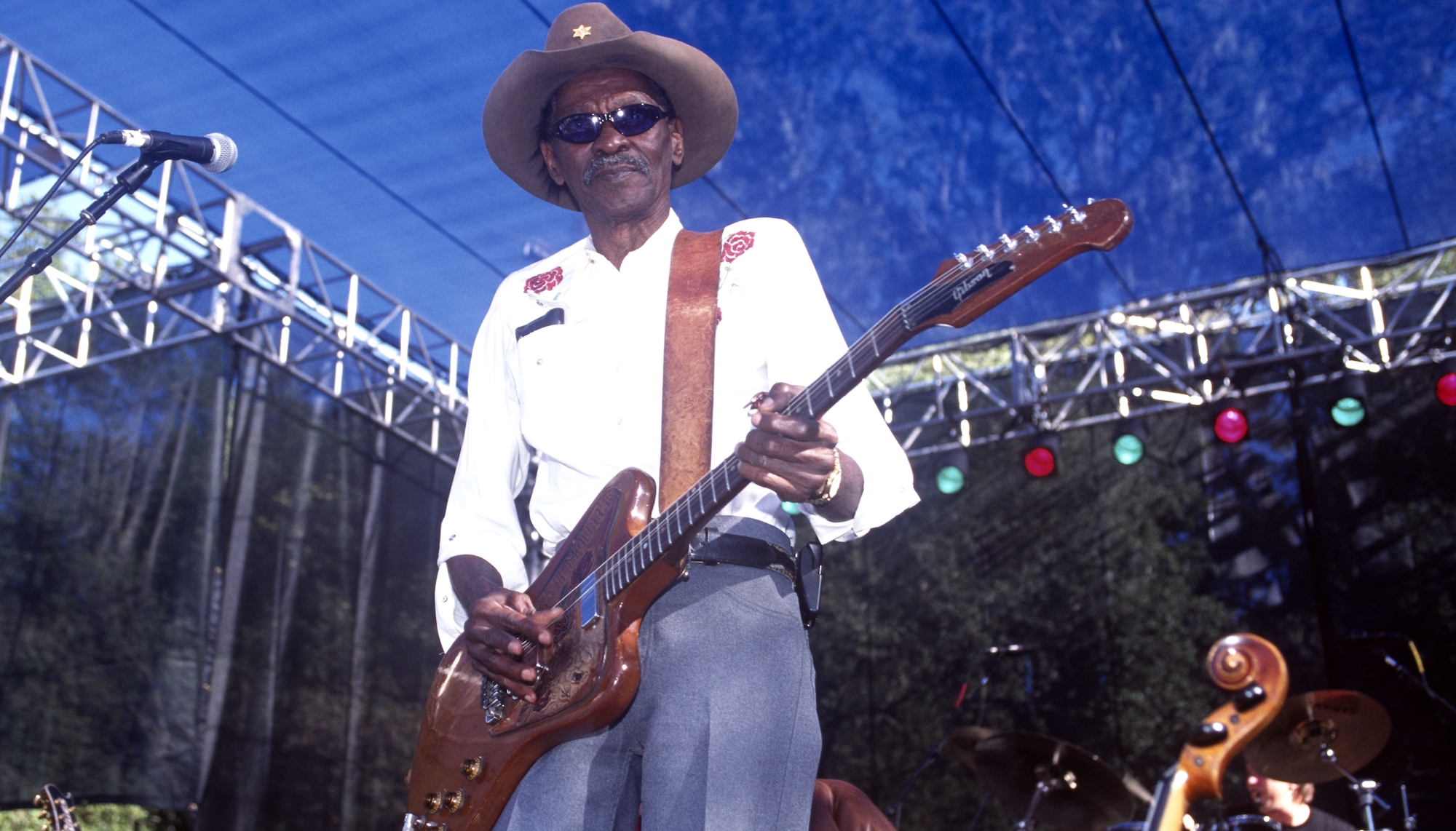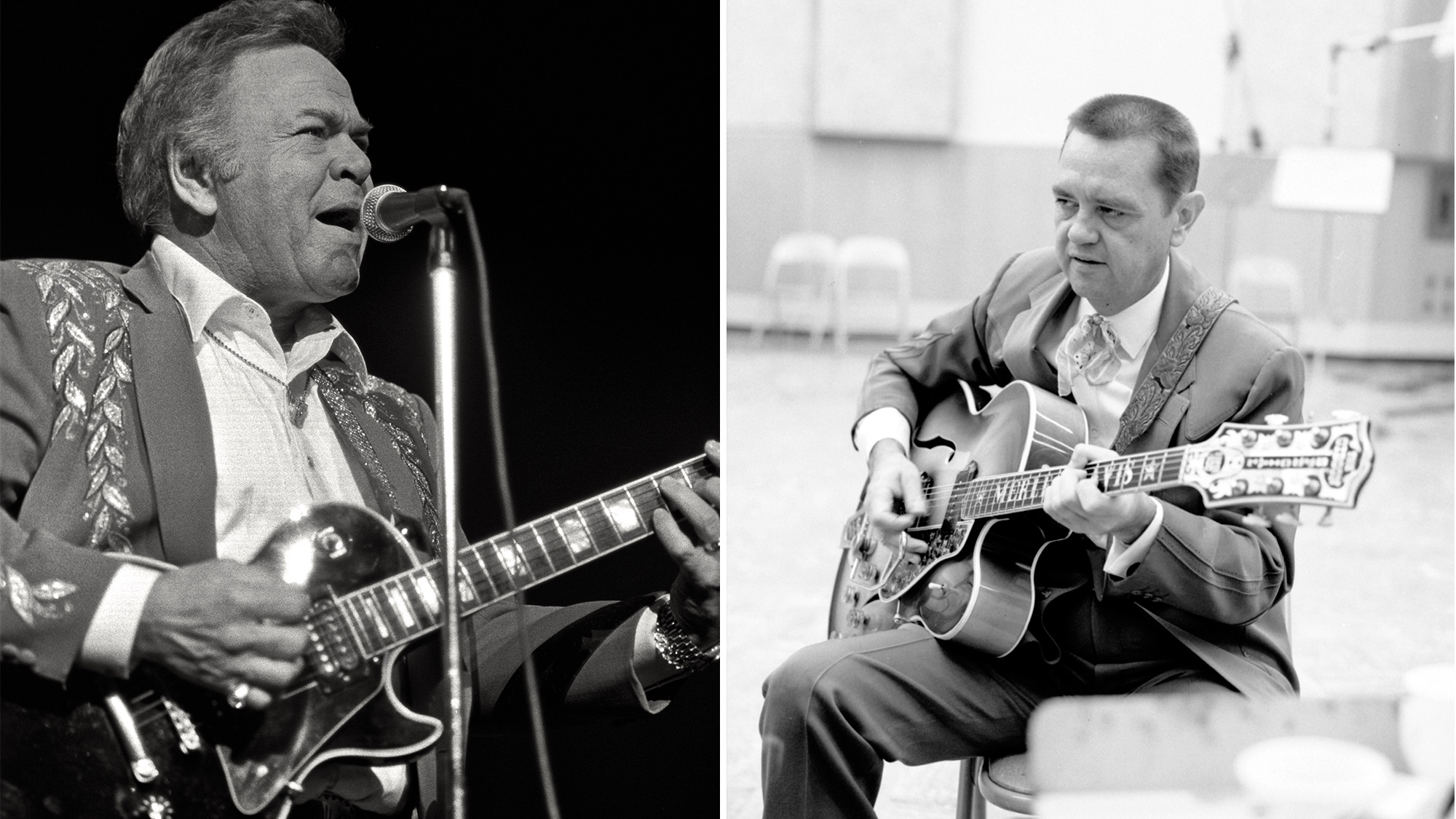Seven String Summitt: Korn, Incubus and Steve Vai
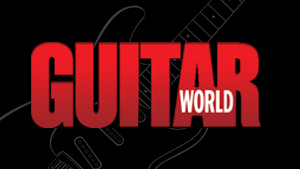
With their dreadlocks, Adidas trainers and baggy pants, not to mention their love of detuned, sludgey guitar riffs, Korn's James "Munky" Shaffer and Incubus' Mike Einziger could serve as alternative poster boys. Not exactly the kind of guys you'd think would love Steve Vai. But you'd be wrong.
"We were just talking about how you were such a huge influence on our wanting to play guitar," says Shaffer.
"Listening to your music really helped me," adds Einziger, whose band's full-length debut, Science (Immortal/Epic), is a dizzying mixture of hard-hitting metal riffs, buoyant funk grooves and unusual tones and textures. "I'd try to figure out what you were playing and hope that I could do it some day. I haven't figured it out yet."
"Thanks," Vai says warmly, visibly touched by this praise.. "It's really an honor to know that I've had a positive influence on your music. It's a painful job sometimes, but if you can influence someone's creativity, it's worth it."
Munky's debt to Vai extends to the Korn guitarist's exclusive use of the Ibanez Universe seven-string, a model Vai helped develop in 1990. The latter broke new ground with this instrument on his acclaimed Passion and Warfare album (Relativity), but the Universe was discontinued by the time Korn rose to popularity in 1995. But the otherworldly sounds Munky and partner Brian "Head" Welch wrench from their seven-strings have inspired renewed interest in the instrument. Ibanez, in turn, has reissued the Universe and introduced several new seven-string models.
A discussion of the seven-string guitar is what has brought this unlikely threesome together. But as the conversation gets underway, it becomes obvious that these players share much more than a love for unusual instruments.
GUITAR WORLD: What developments would you like to see in guitar playing and composition?
Get The Pick Newsletter
All the latest guitar news, interviews, lessons, reviews, deals and more, direct to your inbox!
JAMES "MUNKY" SHAFFER: It's up to the individual to determine where to take the instrument. It's about forming your own ideas and unique approach.
MIKE EINZIGER: It's the weird things that happen randomly, that are almost accidents, that push everything forward.
STEVE VAI: I believe that everybody experiences those moments, but most of the time they don't identify them and act on them. You've got to know how to grab that thread and go with it. A genius is a person who is filled with those moments and makes use of them, acts on them, and does it very simply and unconsciously.
GW: Music seems to be progressing in the areas of sonics and textures rather than notes and technique.
SHAFFER: None of us in Korn have the technique Steve has, but that doesn't prevent us from expressing ourselves in an interesting way. Instead of soloing in a traditional manner, we've learned to communicate by creating really raw and emotional sounds using new combinations of textures. I use a lot of different effects-Uni-Vibes, phasers and wahs, as well as fuzz boxes-but it's a matter of using the sounds in the right context and the right part of the song. I've been playing long enough to know that you don't have to be a technically skilled guitar player to write good songs and compose emotional music.
EINZIGER: A lot of new music is coming out, especially the electronic stuff like drum 'n' bass, where people are doing amazing textural things. I'm not a big fan of using a lot of technology with my guitar. I don't like to plug into a huge rack of processors. I go for simple things, but I try to make my guitar sound crazy. I go for a lot of weird, spaced-out sounds, like the things that I hear on jungle records.
GW: Is the guitar solo a thing of the past?
EINZIGER: No. I'm still a big fan of the guitar solo.
SHAFFER: I am too, but I never could play them the way I wanted to. Instead of a solo, our songs have a middle part where the whole band creates a huge, driving groove. It's cool to do the solo thing, but it's not part of what we do.
VAI: From the time I was a kid, my whole focus in life was to play guitar solos. It's nice to hear players branching off in other creative directions. There were a lot of things that I couldn't do, so that forced me to go in a different direction. I hated the blues when I was a kid. I'd hear a classic I-IV-V blues and go, "What is this crap?" Out of that hatred I developed this weird, perverted type of playing. It wasn't until later on that I started to appreciate the blues.
I was so neurotic that I'd sit on the toilet and do scales and exercises. I'd eat with one hand and do exercises with the other. You can't expect people to do that anymore. Enough is enough. Because now, even if they don't play perfect notes at the speed of light, you get people doing other creative things-amazing things. Like Reeves Gabrels and David Torn.
GW: Steve, what led you to develop a seven-string guitar?
VAI: I was just looking for something different, looking to expand the instrument and get a different sound. It wasn't a great revelation. It wasn't like the skies opened up and this instrument fell down. It was just a JEM guitar with an extra string. We tried to put a high string on it, but they kept breaking so we added a low string instead. It works really great, especially when it's cranked up. It really moves air. And it's not like tuning down-if you tune down you get a light string that's flopping. But when you have a .053 string on the bottom instead, you get that low sound without the flopping. But you guys tune down as well, don't you?
SHAFFER: We tune down a whole step, with the bottom string at A, and we use a .060 string on the bottom. There's still a lot of string tension so it doesn't go out of tune when you fret it.
EINZIGER: I don't use a seven-string, but I wanted to. I was 13 when the Universe came out on the market. I'm small as it is, but at that time I was smaller. I had enough problems playing a six-string guitar because my fingers were really tiny. I remember seeing it up on the rack at Guitar Center and going, "Oh my God! It's God! I've seen it. Can you take it down?" Of course, the nice guy at Guitar Center was very anxious to take it off the wall for me. I started playing it and thought it was the greatest thing ever, but after five minutes my wrist hurt.
GW: How does a six-string player who wants to start using a seven-string overcome the initial intimidation?
VAI: You should be intimidated. [laughs] Actually, it's not like a weird hybrid. To me, an hour or so after someone picks it up for the first time it doesn't feel like a six-string guitar plus one string. It feels like a seven-string guitar. It's very natural. After a while you get used to it, and you feel very manly.
GW: What approach do you take when arranging music for the seven-string?
VAI: The good thing about it is that the seven-string is largely virgin territory. It's a new medium, so you have to rely on your own devices to be creative. Sure, you can do some of the things that I've done, or you can sound like Korn-you can try to, good luck-but it's not like you've got a lot of examples to listen to. You're left to exercise your own brain power to come up with something unique.
Right before Frank Zappa passed away, he was putting together a project that included myself, Terry Bozzio and a bass player with this 35-piece ensemble out of Germany called the Ensemble Modern. We were going to do all of Frank's most difficult music. There was this one piece called "Mo 'n' Herb's Vacation," which has really ridiculous, intimidating melodies. It was written for clarinet, which goes lower than the guitar, so I explained to Frank about the seven-string guitar. He got so excited because he knew I could play the melody on the seven-string. Unfortunately, it was the last project Frank started, and it never happened.
GW: Korn uses two seven-string guitars. How do you and Head work out your guitar parts?
SHAFFER: We feed off of each other rhythmically a lot and work together. We play a lot of parts in unison, or I'll play a steady riff while Head plays counterpoint fills, like we do in the beginning of "Blind." But when it comes to big, fat choruses, I'll break off and do a harmony or just play along with Head, only an octave higher or lower. Our bass player, Fieldy, has a five-string, but him and the drummer lock together more than anything. Me and Head do more of the melodic things, like coming up with chord progressions and riffs. We all work together on the groove and create this huge, massive sound.
VAI: It's quite a sonic overload. One day I was coming from the zoo and heard Korn on the radio. I was stunned. It sounded like a herd of buffalo wearing iron shoes and blowing fire out of their nostrils. [laughs]
GW: Are there any other directions in which the physical instrument itself can be taken?
VAI: What it will take is someone to say, "I want to play the instrument this way." And then they'll try to build it. For example: Uli Jon Roth plays a seven-string called a Sky guitar. It's really wicked. It's like a Strat, but it has 30 frets and the whole front horn is cut away. He wails on it and his tone is beautiful.
EINZIGER: When you used a fretless on your Sex and Religion album, I actually took the frets off my guitar a few years ago and messed around with it. Unfortunately, I ended up sounding like Les Claypool. I'll probably try something with it again in the future.
VAI: I've done some kooky things that involved dividing up the fretboard. I have a guitar that has 24 frets to the octave and one that has 16 frets to the octave, so they're untempered. They sound like divine dissonance from Venus. And I'm working on a new triple-neck that has a six-string, a fretless and a 12-string. It has three individual outputs for three different amps. I'm writing material where I'll be using all three necks at the same time.
I'm trying an open tuning on one neck so I can hit it in between playing the other necks. You've got to start really slow while working things out. Then you've got to keep focused that you're writing a piece of music and not an ambidextrous masturbation ceremony.
GW: What's next-an eight-string guitar?
VAI: I played an eight-string, and it felt like the seven-string probably felt to Mike. It was a little too much. I've got very huge hands and long fingers, but there's something to be said for being comfortable with what you have in your hands. The seven-string is just right, but the eight-string is a little too gargantuan.
GW: How do you feel about the current state of rock guitar?
EINZIGER: It's weird how so many people are saying rock guitar is dead. It may not be in the mainstream right now, but there are plenty of kids sitting in their rooms working on all kinds of wacked-out shit. There will always be creative people out there who are going to push guitar in different directions.
SHAFFER: There still is something about a distorted barre chord that you can feel. That's never going to away. Heavy, distorted guitar drives a band really well-and that's no matter what kind of band you're talking about, even a techno band.
VAI: A certain type of person is really stimulated by the sound of clanking strings. They may get away from it for a while, but they need to hear it. It satisfies a void in some people. I don't know who says it's dead. That's like saying drums are dead. It's like saying grooves are dead. Grooves are it-they're just changing. You listen to the grooves of the Fifties compared to those of the Sixties, Seventies, Eighties and Nineties, and they're progressing.
The guitar is one of the best instruments to express yourself with. It bends and moves with you. And every note you hit on the thing is different. Every note ever played on the guitar is like a snowflake-no two are the same. It's an intimate instrument, too. When you want to play heavy and hard and feel that distortion, there's nothing like a good dose of heavy distortion. It does something to you. But it can also be really tender and subtle.
It's just in a different stage right now. My whole focus was playing fast, cool, melodic and burning. The focus is different right now, but the guitar is still there. As far as I'm concerned, it will always be there.
Chris is the co-author of Eruption - Conversations with Eddie Van Halen. He is a 40-year music industry veteran who started at Boardwalk Entertainment (Joan Jett, Night Ranger) and Roland US before becoming a guitar journalist in 1991. He has interviewed more than 600 artists, written more than 1,400 product reviews and contributed to Jeff Beck’s Beck 01: Hot Rods and Rock & Roll and Eric Clapton’s Six String Stories.
“I knew the spirit of the Alice Cooper group was back – what we were making was very much an album that could’ve been in the '70s”: Original Alice Cooper lineup reunites after more than 50 years – and announces brand-new album
“The rest of the world didn't know that the world's greatest guitarist was playing a weekend gig at this place in Chelmsford”: The Aristocrats' Bryan Beller recalls the moment he met Guthrie Govan and formed a new kind of supergroup
